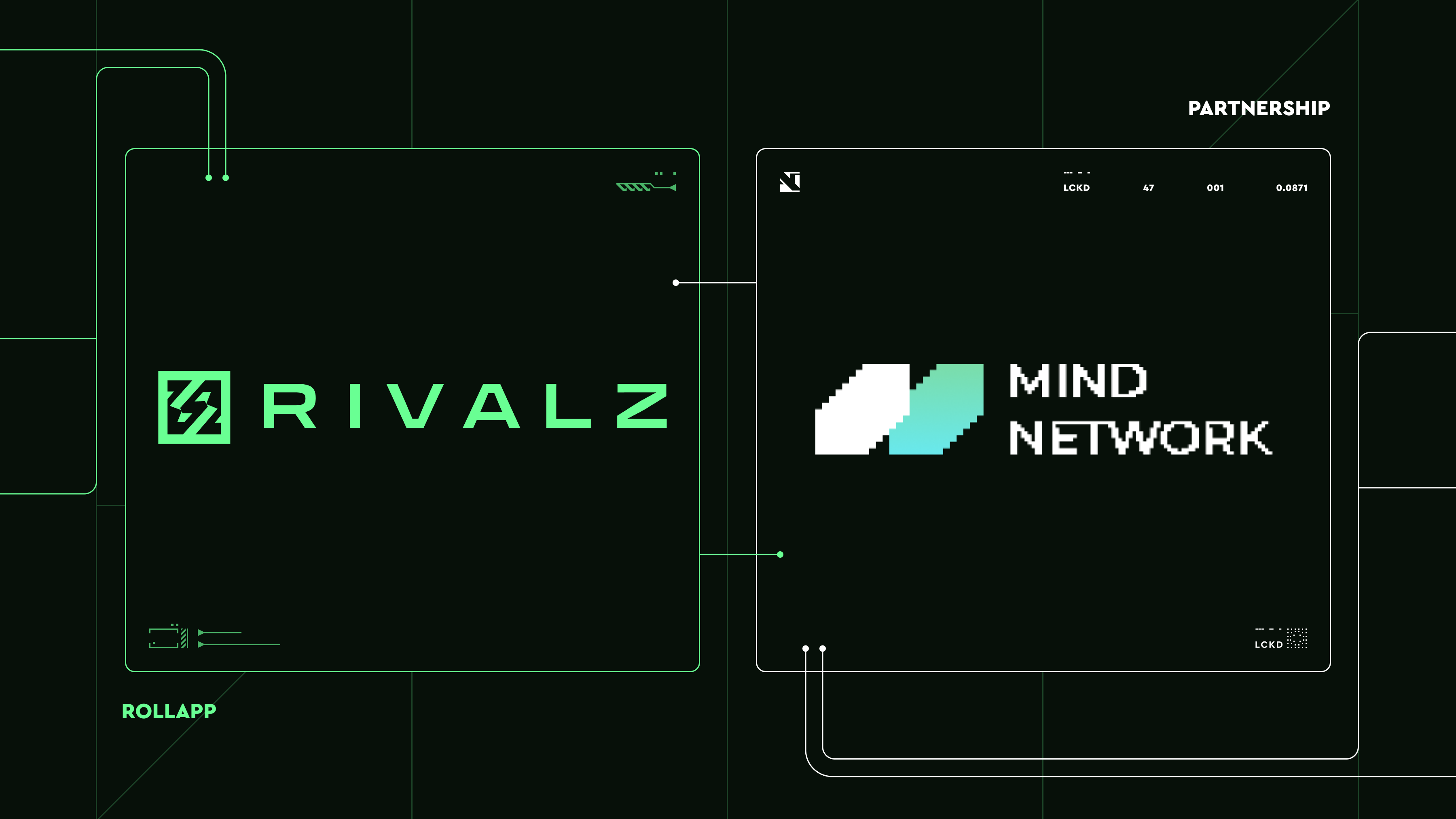The Web3 + AI Newsletter 23

Hello, everyone, and warm welcome to all newly joined subscribers!
This is the Web3 + AI newsletter, where we explore the intersection of blockchain and artificial intelligence. A second newsletter within one week may seem excessive, but it only comes to demonstrate how increasingly dynamic the Web3 + AI space is getting and how determined I am to keep you up-to-date!
Thank you for being here! Let's dive in!
What's New in the Web3 + AI Startup World?
peaq Joins Mastercard's Start Path Program, Attracts Nuklai
The DePIN-focused layer-1 blockchain peaq announced its admission into Mastercard's Start Path Program, supporting different verticals in Web3 and fintech. With the help of the credit card behemoth, peaq will be able to identify and explore synergies and opportunities between the DePIN sector and traditional finances (TradFi).
What peaq will explore with Mastercard:
- Enabling machines on peaq native DePINs to leverage Mastercard's network and functionality
- Streamlining transactions between the peaqosystem and the fiat space
- Tapping Mastercard’s network for new partnerships and collaborations

In the meantime, peaq welcomed one more AI-focused protocol into its ecosystem, namely Nuklai. Nuklai is building a peer-to-peer (P2P) data marketplace for AI and Large Language Models (LLMs). The two companies will seek to complement each other’s key functions, such as data verification and monetization. Nuklai will also deliver new AI and machine learning tools and capabilities to leverage DePIN data.

Morpheus Joins Forces with FLock.io, Leverages Lumerin Codebase
The on-chain federated learning platform FLock.io and P2P smart agents builder Morpheus have announced a strategic partnership to accelerate Decentralized AI capabilities in Web3. They aim to reduce Morpheus agents' reliance on external function calls to OpenAI, while also making FLock's incentivized community fine-tuning platform available through the Morpheus client.
FLock.io's focus lies in optimizing Morpheus' workflow automation for data generation and model fine-tuning, while empowering local function calls to facilitate accessible crypto trading for everyone.

In my previous newsletter, I told you about Morpheus taking part in the development of the private LLM Venice. Meanwhile, it also became clear that its core node software is powered by Lumerin, a Web3 P2P data routing protocol.
Lumerin provides a foundational layer for smart contracts that control how P2P data streams are accessed, routed, and transacted. It is an open-source project that efficiently allocates AI compute power, creating multiple benefits for developers and users of smart agents.

Mind Network Provides FHE Validation to Babylon, Rivalz
The FHE* restaking layer Mind Network has entered a strategic alliance with BTC staking protocol Babylon to bring advanced encryption technologies to the Bitcoin blockchain.
Mind Network will leverage Bitcoin LRTs (Liquid Restaking Tokens), issued to represent native bitcoins staked through Babylon, to secure Mind Network’s subnets via FHE validation.
Babylon's business model allows holders of idle Bitcoin funds to stake their assets to enhance the security of PoS chains and earn rewards in return. These investors receive Bitcoin LRTs (Liquid Restaking Tokens) to represent the bitcoins they have deposited into Babylon. Mind Network, on the other hand, lends its FHE validation service to facilitate a solution known as ‘remote staking’. “It is a method that allows Bitcoin and its LRT holders to participate in PoS validation processes securely and transparently, without relinquishing control of their private keys”.
A typical problem of validation without FHE is to be “influenced” by other nodes’ validation result, or leak secrets during validation. Mind Network’s FHE can stop this problem, and is favoured particularly by AI projects, DePin projects and Web3 infras. For example, Mind Network’s FHE can enable trusted AI model selection, protect sensitive data leakage in DePin, or prevent front-run of cross-chain trades.

In a similar deal, Mind Network agreed to integrate its FHE validation network with Rivalz data provenance and intelligence layer, with the aim of bringing secure computation and consensus.
By utilizing Mind Network’s solution, Rivalz will be able to bolster the secure computation and consensus of the Rivalz AI Intel Layer.

Space and Time Allies with exaBits, Hyperbolic, Port3Network
Space and Time, a zero-knowledge proofs (ZKP)-powered data layer for AI, has partnered with Exabits to leverage its decentralized computation resources comprising 65,000 GPUs.
Space and Time provides nearly 100TB of verifiable Web3 data indexed from major chains (and off-chain data) to AI models, enhancing the data ecosystem for AI.
Our collaboration with Space and Time aims to significantly reduce latency and enhance the efficiency of AI model training and deployment, bringing unparalleled performance to the AI community.
Space and Time also collaborated with Hyperbolic to power its research around verifiable RAG:
Retrieval augmented generation (RAG) is when an LLM grabs fresh data or extra context from an external vector search database to generate a better response to a user’s prompt.
RAG allows the model to respond beyond the constraints of its training data. For example, if you ask an LLM for the latest stock prices, recent sports scores, or other things that it wasn’t necessarily trained or fine-tuned on, RAG helps it provide an accurate and up-to-date answer.
Proof of Vector Search is a novel ZK proof developed by Space and Time that verifies that data retrieval during RAG was done correctly and on untampered data. Check out also my previous newsletter to learn more about Hyperbolic's spML verification of AI inference.
Finally, Space and Time announced its cooperation with Port3, a decentralized AI and cross-chain smart contract execution layer.
Together, Space and Time and Port3 provide AI devs with a powerful set of tools for building next gen AI that’s secure, transparent, and verified onchain.
Edu3Labs Introduces AI University
Edu3Labs is set to supercharge and reinvent Web3 and blockchain education with the help of artificial intelligence. The company announced the launch of its AI university, currently offering four different courses in Marketing, Mental Health, blockchain, and finance. Users can ask Edu3Labs' AI models questions, and according to the company, they would receive more accurate answers than if they had asked ChatGPT.


Noteworthy Podcasts, Articles, Events
The Web3 and AI Funding Bulletin | May I
The first half of May is behind us, and your Funding Bulletin is here to cover all money rounds into projects converging Crypto and AI. Deals weren't as numerous as in April, although builders of AI agents, Web3 + AI games, and verifiable and confidential computing infrastructure remain attractive for VCs.

FHE Gradually Gaining Ground
I have discussed fully homomorphic encryption (FHE) and its enormous potential on several occasions here, and I am glad to see it getting largely adopted. The 'Holy Grail' of cryptography, as some call it, allows for complex computations to be performed on encrypted data, and thus ensures privacy and confidentiality. As valuable as transparency is in blockchains, some use cases like healthcare and finance remain out of reach for the technology if certain levels of security and information protection are not satisfied. The same goes for running machine learning models on sensitive personal data. Enter FHE.
For years, FHE has been just a theory, but thanks to the recent innovations by Zama, it is now becoming a practical, feasible, and quite powerful tool. Building on Zama's work, a series of Web3 + AI companies are now integrating FHE to offer decentralized confidential computing (DeCC) and cater to use cases, which up until recently were considered taboo. Some of these companies I have discussed here, like Fhenix, Inco, and Mind Network. Read their founders' views on realizing an end-to-end encrypted web using FHE:
Zama's vision for HTTPZ involves rebranding HTTP to HTTPZ, emphasizing zero trust and data confidentiality. The goal is to make operations over encrypted data seamless and transparent for users, requiring overcoming challenges like performance optimization. Success in this vision will establish encrypted data as the standard for all computations, necessitating collaboration among entities to promote FHE technology adoption.

One can recognize that FHE is going mainstream when new FHE-enabled ventures come to live daily, which I strive to collect in the Ultimate Directory of Web3 + AI Projects. Even Erik Voorhees (see below) commented that true privacy of his AI model Venice could only be achieved through FHE, and “he'll get there”. Vitalik Buterin also republished an old blog post dedicated to the cryptographic scheme to respond to the growing public interest.

You may find Vitalik's post a bit too technical, in which case I recommend listening to the FHE Onchain podcast exploring various use cases and projects building in the FHE realm.
On LLMs and Privacy
In my last newsletter, I told you about Erik Voorhees' Venice AI model, whose main competitive advantage over LLMs produced by OpenAI, Anthropic, or Google, is privacy. In this conversation on Laura Shin's Unchained podcast, Voorhees and Venice's COO Teana Baker-Taylor emphasize the dire need for privacy in interacting with apps likes ChatGPT, and explain why the alternative is simply Orwellian.
Disclaimer: None of this should or could be considered financial advice. You should not take my words for granted, rather, do your own research (DYOR) and share your thoughts to create a fruitful discussion.











